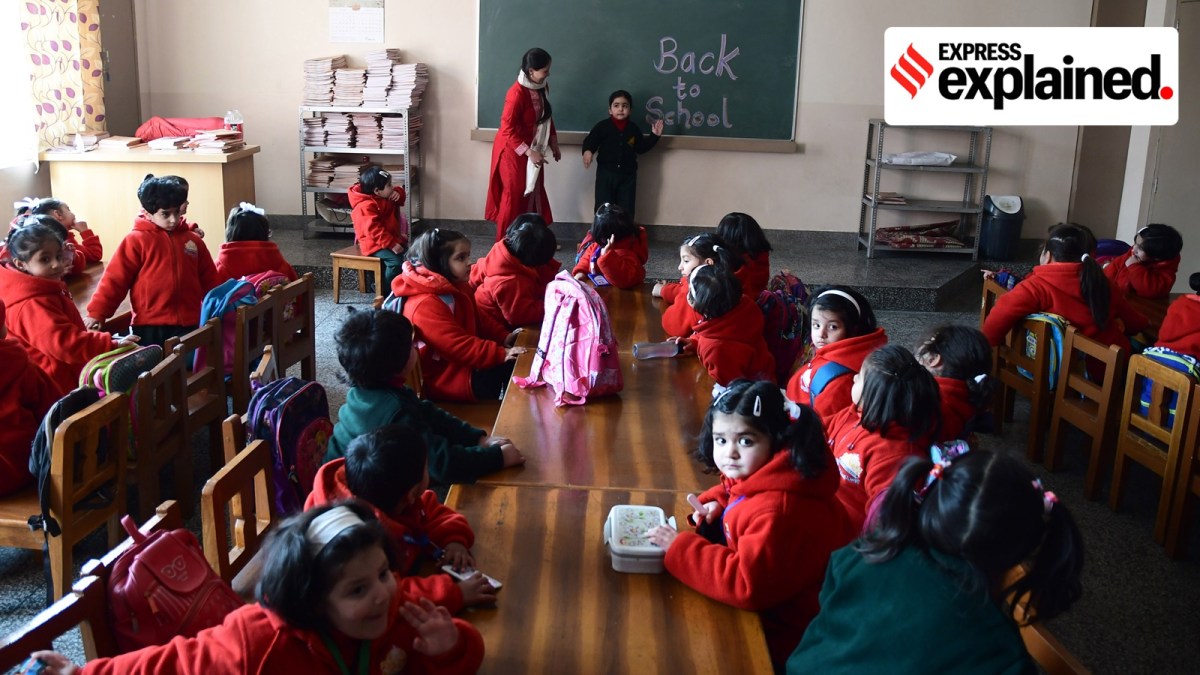A new report card, where students, their friends, parents get a say: What has NCERT changed, why
The Holistic Progress Card, or HPC, will no longer depend on marks or grades to assess a student’s academic performance. Instead, it will rely on a 360-degree evaluation. Here are the details.

The traditional report cards students receive in schools are set to undergo a major change, with the National Council for Educational and Research Training (NCERT) introducing a new ‘holistic progress card’ (HPC), which will measure, apart from academic performance, a child’s progress in interpersonal relationships, self-reflection, creativity, and emotional application in classrooms.
The HPCs have been devised by Performance Assessment, Review, and Analysis of Knowledge for Holistic Development (PARAKH), a standard-setting body under the NCERT, for the foundational stage (Classes 1 and 2), preparatory stage (Classes 3 to 5) and middle stage (Classes 6 to 8), as per suggestions by the National Education Policy (NEP) 2020. Report cards for the secondary stage (beyond Class 9) are still being prepared.
What is a Holistic Progress Card?
The Holistic Progress Card, or HPC, will no longer depend on marks or grades to evaluate a student’s academic performance. Instead, it will rely on a 360-degree evaluation.
Under the HPC model, the students will be regularly assessed through class activities where they are not just passive learners but active agents. The activities will prompt students to apply diverse skills and competencies that will demonstrate whether they have been able to grasp concepts. The difficulty level they experience while performing a task will also be assessed.
Teachers, thus, will be able to register the strengths of a student, such as their ability to “collaborate”, “follow instructions”, show “creativity” or “empathy”, etc. Similarly, weaknesses like “lack of attention”, “peer pressure”, “lack of preparation” will help teachers identify areas where students need help.
A key feature of the HPC is that students will have a say too, evaluating their own as well as their classmates’ performance. For instance, at the foundational stage, a student will circle appropriate responses like ‘Yes’, ‘No’ or ‘Do not know’, to descriptive statements like “I liked doing this work” or “I found this work easy”. Similarly, a student will assess her peers by answering whether “my friend liked doing this work” or “my friend found this work easy”.
The HPC will also link home and school by making parents an integral part of a child’s learning process. Parents’ inputs on their child’s ability to do homework and whether a child is able to follow lessons in the classroom will be included. Even the child’s ability to balance screen time with extra curricular activities at home are now part of the progress report card.
When will it be rolled out for all classes?
After PARAKH prepared the HPCs for students till Class 8, it was sent to all states and Union Territories in September 2023, with the NCERT asking them to either adopt the HPC or make modifications that suit their regional requirements. PARAKH’s CEO, Indrani Bhaduri, said 15 to 16 states and UTs are already using the new method at the foundational and preparatory stages.
Why was the progress card changed?
According to the NEP 2020, the HPC is a means to build on self-awareness and self-esteem of students by communicating their strengths and areas of improvement.
Instead of testing rote memorisation skills, the HPC focuses on evaluating higher-order skills, such as analysis, critical thinking, and conceptual clarity of students.
Based on NEP’s recommendation, the National Curriculum Framework for School Education was rolled out in 2023. The NCF SE states that the assessment of a student’s progress should be analysed through systematic collection of evidence. NCF also suggests peer and self-assessment to help students monitor their own learning.
For a deeper understanding of a student’s “core competencies”, the NCF SE suggests classroom assessment through activities like projects, debates, presentations, experiments, investigations, role plays, etc. The HPC has been designed in line with this.
What are its benefits?
The HPC goes beyond numerical grades, focusing on descriptive and analytical evaluations that encompass academic achievements as well as the development of critical skills in a child. It promotes a shift from summative to formative assessment, fostering competency-based evaluation and holistic growth. Additionally, it seeks to provide teachers and parents with insights to support each student in learning.